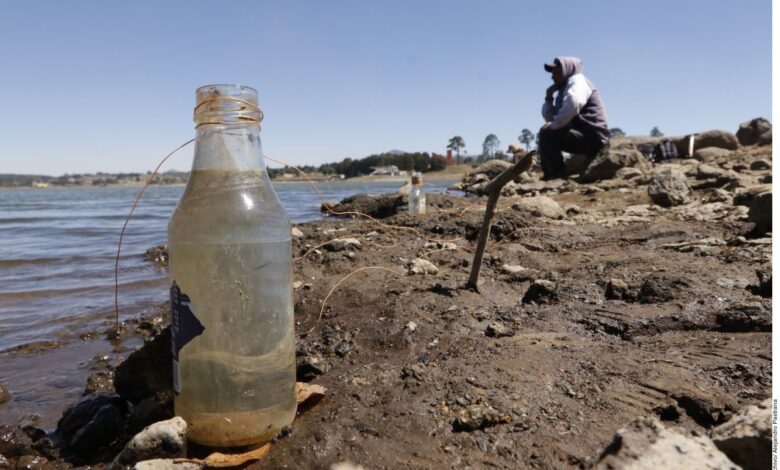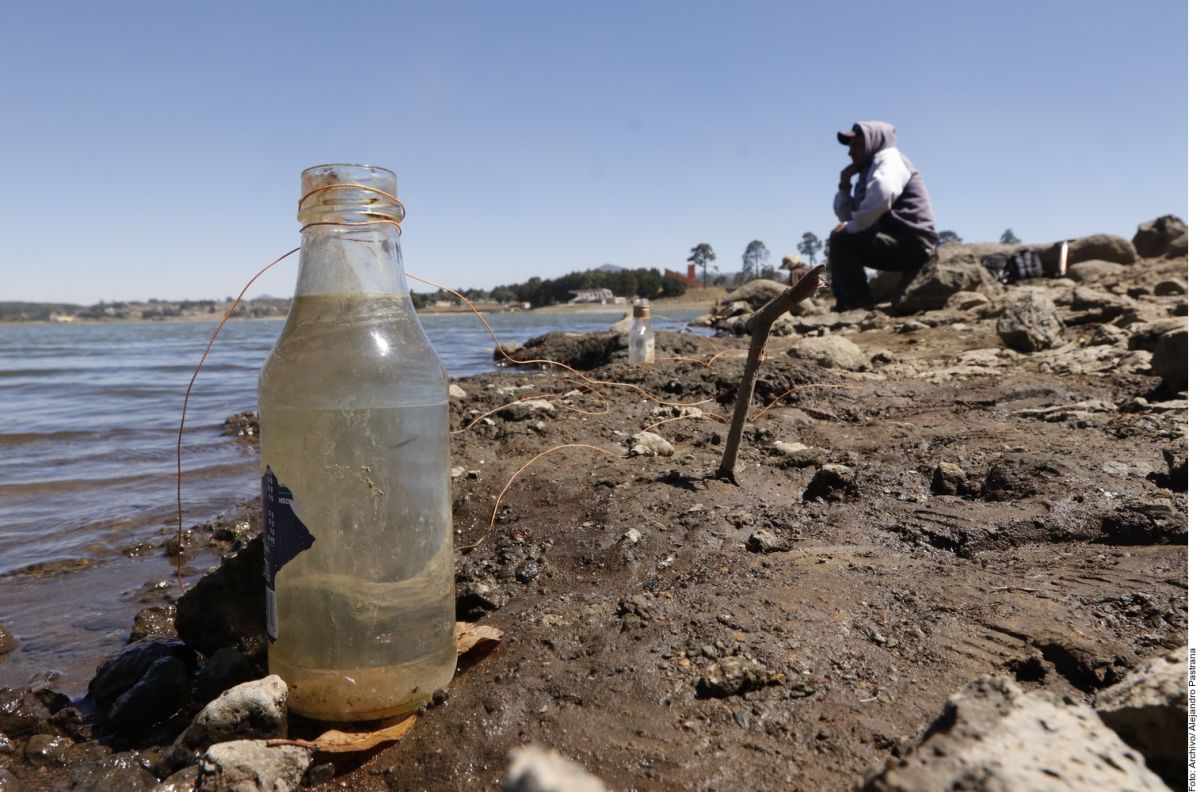An aqueduct reveals Mexico’s water war


MEXICO.- It is an open political, social and economic war between almost all sectors of a society. Presidents of the Republic of various mandates as well as indigenous people are involved; the Supreme Court of Justice of the Nation (SCJN) and governors; the city against the country; social activists and anthropologists; businessmen and hitmen.
Discord: the Independencia Aqueduct in the state of Sonora that diverts water from the Yaqui River to Hermosillo, the state capital.
It is debated whether it should continue to function or not and has put moderates against radicals, to Andrés Manuel López Obrador against the leader of the historic left and four times presidential candidate, Cuauhtémoc Cárdenas because the former proposes a consensual solution while the latter asked to cancel the aqueduct.
On the one hand, the aqueduct operates illegally after a failure of the SCJN who gave the reason to the Yaqui ethnic group; on the other, the cancellation would mean leaving millions of people without water, who totally depend on this work imposed by former governor Guillermo Padrés and former president Felipe Calderón since 2010.
The public discussion has been complicated since the end of last September, when the president attended a ceremony of “Appeal for Forgiveness to the Yaqui People” for the grievances against them during the Colony, the Porfiriato and other times.
In this context, Cuauhtémoc Cárdenas, who was serving as master of ceremonies, called for a resolution to the conflict and justice for the murders of ethnic water defenders.
Luis Urbano, a 35-year-old social activist, was shot to death on June 8, in Ciudad Obregón. Tomás Rojo Valencia, an activist and spokesman for the original Yaqui people, disappeared on May 27 in the Vícam community and his body was found on June 17.
From his trench, the ethnic spokesman Alberto Bizcarra regretted that he wants to explain each of the murders with fallacious arguments to cover up the problem.
“We do not share the idea that the disappearance was forged in the underworld of organized crime, we know that our colleagues were challenging power and financial structures that want to turn water into a commodity, not based on collective benefit,” said Alberto Bizcarra, one of the spokesmen.
One of each
The Independence Aqueduct was planned eleven years ago as part of the infrastructure that would save the supply of drinking water to several cities affected by the severe drought. in the northern border state because the Abelardo L. Rodríguez dam dried up. Thus arose the alternative of diverting around 75 million cubic meters from the Yaqui River.
This river dragged a conflict since 1940 because the then president Lázaro Cárdenas restored to the ethnic group in addition to the territory from which the right to use 50% of the water had been stripped, but the community never received all the water resources and to date there are still regions where this population lacks drinking water to survive.
Despite the antecedents, the project was given the green light, even with manipulations of the environmental impact study and with a consultation with the communities without complete information. For this reason, the farmers of the Yaqui people of Vícam, coordinated in the Citizen Movement for the Defense of Water, presented an amparo to the SCJN that proved them right in 2013.
Local and federal authorities did not comply with the resolution and continued to divert the water. Since then, the ethnic group has made protests of all kinds, taking roads, blocking crossings to the United States, among other actions.
Since then, spokesmen for the Yaquis’ struggle against the Independence Aqueduct have suffered arrests and attacks, indicated as having political bias by organizations such as Amnesty International, as happened to representatives Mario Luna and Fernando Gutiérrez, who were arrested and imprisoned in 2014.
Then the homicides against Urbano and Rojo continued and the movement also radicalized on the other side of the coin, fearing the population of Hermosillo and other cities that source from the basin such as Ciudad Obregón, Empalme and Guaymas.
The other side of the conflict
Martín Zalazar, president of the National Chamber of Commerce in Small Business, Services and Tourism stated that the Yaquis’ demands are very “simplistic” and lack empathy.
“The transfer of water benefits thousands of Hermosillo residents and must be maintained,” he warned. “At least, as long as there is no alternative option such as a desalination plant, for example, the capital of Sonora needs that water from the Independencia Aqueduct for homes and economic activity.”
The Mexican president agrees with this vision. He said it would be “a mistake” to cancel the operation of the aqueduct and insists that the water from the Yaqui River should be shared. According to his calculations, it may be enough to meet both the needs of the tribe and the supply of the Sonoran capital if a use agreement is reached.
For it signed together with the eight traditional governors of the Yaqui people, the Justice Plan that establishes an investment of the Mexican Government for 11,000 million pesos (530 million dollars) in indigenous territory in health, education, housing and social development works, as well as other plans for water.
“The modernization of irrigation systems and an appropriate rationalization of the resource are solutions that can help.” detailed.
It also promotes the creation of a new Irrigation District that would only be controlled by the Yaquis ”.
But the Citizen Movement for Water is not satisfied with the proposal because they say that there are not 700 million cubic meters of guaranteed water and it is not known from where they will be obtained if they accept that the operation of the Independencia Aqueduct continues.
“The entire flow of the Yaqui River is already under concession between the towns throughout its basin, agricultural producers and mining companies and the promise of the federal administration with millions of liters promised may never come,” said Zalazar.
“We do not demand more than what has always been ours, we do not demand more water than was agreed upon,” added Alejandro Aguilar, an anthropologist at the National Institute of Anthropology and History in Sonora, who has accompanied the ethnic group in their demands.
It may interest you:
· Indigenous people warn of “false leaders” to approve projects against them
· The other rebellion of the indigenous peoples of Mexico: their own governors
.



